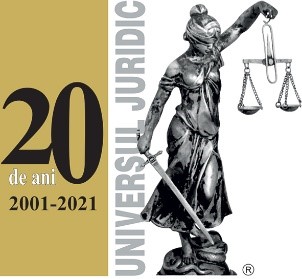Vinovăţia, în forma culpei prezumate – condiţie a rezoluţiunii şi a rezilierii în reglementarea Codului civil
valeriu.stoica[at]drept.unibuc.ro
Cuvinte cheie:
synallagmatic contracts, rescission, culpable non performance, presumption of fault, fortuitous event, force majeureRezumat
Ten years after the entry into force of the Civil Code, many questions about the meaning of some of the texts in this piece of legislation have been answered in doctrine and case law. Some of these answers were contained in the texts from the outset, but their decipherability was hindered by less than inspired formulations by the legislator. The idea that guilt, in the form of fault [art. 16 para. (3) sentence I of the Civil Code], is a condition for termination and rescission, and the distinction between the dissolution or termination of a contract by rescission or termination, as the case may be, on the one hand, and the dissolution or termination of a contract by reason of the fortuitous impossibility of total and definitive performance, on the other, have been present in the current Civil Code since its entry into force, in the body of rules governing these modes of dissolution or termination, which are specific to contracts by way of a contract [Art. 1.516 para. (2)(2), Art. 1.549 1.554, Art. 1.557 and 1.634, with reference to Art. 1.351 and 1.352 of the Civil Code].
Most of the doctrine, explicitly, and the case law, almost without exception, recognise the rule according to which guilt, in the form of presumed fault, is a condition for termination and rescission under the Civil Code, a rule which also knows exceptions, similarly to the situation of contractual civil liability in its typical form. That is why the title of this article contains a statement and not a question.
Keywords: synallagmatic contracts; rescission; termination; culpable non performance; presumption of fault; non performance without justification; justifiable causes of non performance; fortuitous impossibility of performance; fortuitous event; force majeure; fortuitous event.
Publicat
Versiuni
- 21-04-2023 (2)
- 13-09-2022 (1)









